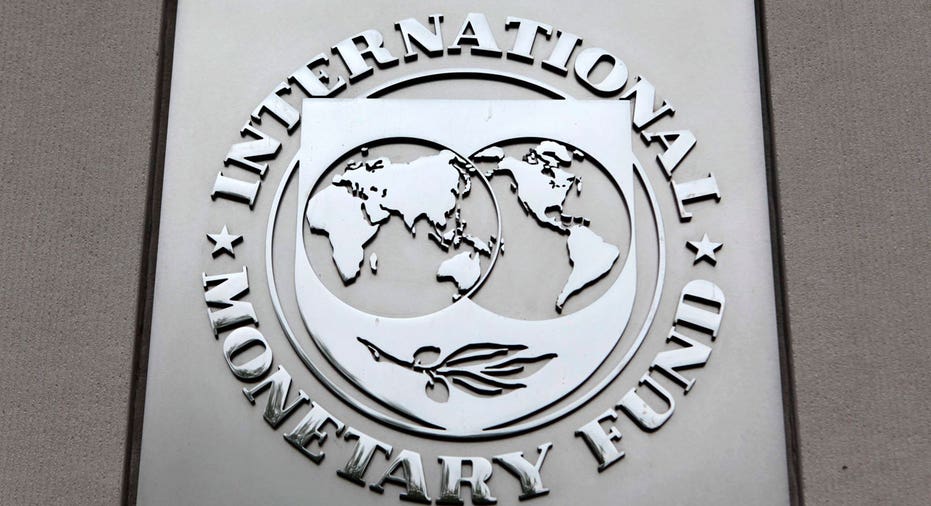IMF Downgrades Outlook for Global Growth

A slowdown in emerging markets is pushing the world economy into its weakest expansion since the financial crisis, the International Monetary Fund said Tuesday as it once again downgraded its outlook for global growth.
China's deceleration and the subsequent plummet in commodity prices revealed a developing world that overinvested, borrowed excessively and exhausted its ability to expand without major economic overhauls. The IMF cut its forecast for emerging markets to 4% this year, down 0.2 percentage point from its last update in July. That marks the fifth consecutive year of declining growth and a level nearly half the rate the IMF recorded six years ago.
Modest growth in the U.S. and a meager recovery in the eurozone, meanwhile, haven't been able to offset falling output in emerging markets. The IMF cut its projections for global growth to 3.1% this year from its previous forecast of 3.3%. Souring emerging-market prospects also are muting next year's rebound: The IMF reduced its prediction for global growth in 2016 by the same amount to 3.6%.
The IMF's increasingly dour outlook sets a gloomy tone for the fund's annual meeting of finance ministers and central bankers in Peru this week.
"Six years after the world economy emerged from its broadest and deepest postwar recession, a return to robust and synchronized global expansion remains elusive," Maurice Obstfeld, the IMF's new chief economist, said in the foreword to the fund's latest World Economic Outlook.
Besides a broad-based downgrade in growth around the world, "downside risks to the world economy appear more pronounced than they did just a few months ago," he said.
As growth prospects deteriorate in emerging markets, investors are pulling their cash out en masse. The Institute of International Finance, an industry group, estimates this year will mark the first net exodus of capital out of emerging markets in 27 years, with more than a trillion dollars fleeing countries such as Brazil, Turkey and South Africa.
China's slowdown drastically reshaped demand for the global commodities many developing economies rely on to drive growth. Many economists now forecast years of soft prices for metal and energy products. Investors are also increasingly worried China's economy could nosedive if credit-fueled bubbles in the real estate, construction and manufacturing sectors pop.
The IMF kept its forecast for China's growth to slow to 6.3% in 2016 from 6.8% this year as fund officials say fears of a hard landing are overblown.
After years of stellar growth, many emerging markets have reached their ability to expand without major revamp of their economies to make them more competitive, innovative, efficient and diverse.
Adding to their problems, emerging markets bulked up on debt to expand production capacity, often borrowing in dollars. The Federal Reserve's plans to raise rates and a stronger dollar are putting pressure on both corporate and national balance sheets.
The IMF and the IIF warn that developing economies face a coming wave of corporate defaults. Firms in those countries swelled their debt levels by 30% of gross domestic product over the last five years, fueled by cheap central-bank cash.
That toxic mix of threats is creating a damaging feedback loop between growth prospects, credit, investment and markets.
Brazil is a prime example: The country, which relies heavily on exports to China, has failed to overhaul its economy, and many of its companies are struggling with heavy debt loads. The IMF slashed the Latin American giant's growth forecast for this year and next by around 1.5 percentage points. It now expects a 3% contraction in 2015 and a 1% shrinkage next year.



















